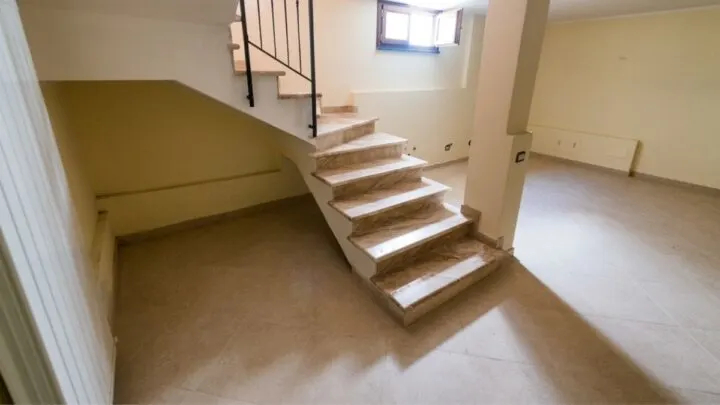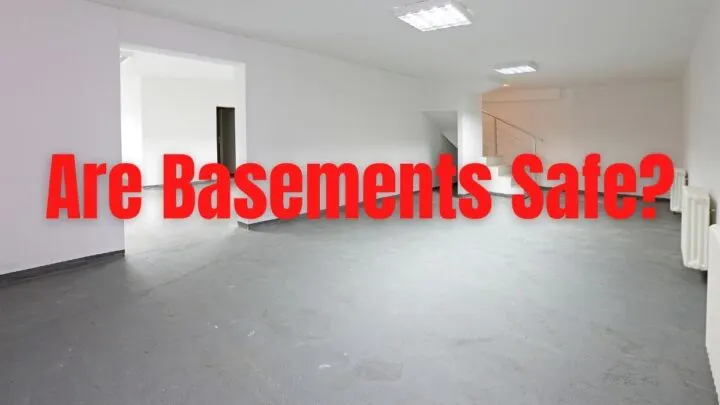Some people have basements as part of their home. Many enjoy the extra room and storage space.
Others avoid their basement at all costs because they believe a ghost haunts the space underneath the stairs.
And those who live in tornado country have their basements stocked with all the emergency supplies they need.
If you have a basement, you need to know how to protect the structure and the walls.
It is critical that the homeowner learn how to spot issues in your basement.
If they do not know the signs of basement damage, their ignorance could lead to tens of thousands of dollars in repairs.
Basements are safe and can provide extra storage or even shelter from bad weather, but only if the owner keeps up with repairs and quickly tackles any issues when they appear and before the issues get worse.
The basement is not an unchanging part of the house. It is vulnerable to leaks, cracks, gas leaks, and fires.
As long as the homeowner keeps the basement in good condition, it is definitely worth having.
Are Basements Safe?
Generally, if you live in the right environment, then basements are safe. In fact, basements can keep you protected from wild and violent acts of nature.
Those who live in tornado country could not live there without a basement in their home.
People enjoy owning homes with basements because they have more storage space, have an extra room to put another family member, or they can turn the basement into a second living room or entertainment room.
But a basement is not a safe feature to have in a home in certain types of environments.
For example, California is known for having a lot of earthquakes.
There’s also a lot of additional seismic activity in the last three decades. So, if you’re thinking of buying a home in California, do not expect it to have a basement.
If you absolutely need a basement in your home and you want to live in California, then the basement will need to be built to different standards than other states and environments.
Also, like any other part of a home, the basement must be monitored for damage.

Why Do People Buy Homes With Basements?
While it is known that basements have their own set of problems, having one can be very beneficial.
People who live in tornado areas have laws that require homes to have a basement.
When it is tornado season, families will stock up on equipment and supplies and put everything in their basement.
Then they will also store their valuables in their basements.
When they hear their city or town’s tornado siren, all they need to do is grab their pet and head down into the basement.
For people who do not live in tornado areas, basements are used for storage or as an extra room to sleep in.
If a person works at home, they might even put an office in their basement so they don’t have to sacrifice a bedroom.
Another reason people want basements in their home is so they can have an additional escape route in an emergency.
If there is a fire in the kitchen or on the first floor, they can run down the staircase and access the basement.
They will be able to avoid the fire in the living room or kitchen and get out of the house safely, but only if the basement has an extra door leading outside.
Not all houses with basements have an outside door or cellar door that leads to the basement. A contractor can add an outside door and staircase to an existing basement.
Warning Signs to Watch Out For In a Basement
Basements are where most contractors place the fuse box, water heaters, air conditioning unit, and other important components.
Because all these important components are in the basement, you should develop a habit of checking the basement for dangers, even if you only use it for storage.
Here are the top 4 signs of damage that a homeowner with a basement should be aware of:
- Cracks – If you see cracks developing on the basement floor or in the walls, clear your schedule and call a contractor immediately. Do not wait until next year or in two years to fix cracks in the basement, as cracks in the basement could jeopardize the entire structural integrity of the house.
- Water damage – Water damage could cause mold to form or create cracks in the foundation. If you cannot see any water issues but you notice the signs of water damage, there could be water trapped behind the basement walls. Flash floods and storm surges can flood a basement with water.
- Mold – If moisture or water gets into the basement, mold can develop and spread quickly. One of the worst molds to find in the basement is called black mold, but it is also one of the most common modes. Black mold releases mycotoxins that can severely impact a human’s or animal’s health if they come into contact with it. If there’s water damage inside of the basement or your basement has gone through a flood, expect mold to develop in the coming weeks.
- Gas and Fire – One common danger in homes that have basements is the buildup of natural gasses. If the homeowner does not monitor their basement, then gas could build up in the basements and they would not know it until the gas seeped under the door and into the house
- To protect your home from undetectable gas leaks in the basements, buy a natural gas detector. This simple $15 purchase could help protect you while you sleep at night.
- If there is a gas leak in your basement, it is best to assume that any gas in your basement is flammable. Turn off the electricity to the basement and do not light any candles in or near the basement.
- To protect your home from undetectable gas leaks in the basements, buy a natural gas detector. This simple $15 purchase could help protect you while you sleep at night.
Conclusion to Basement Safety
Basements are safe as long as they are built in the right environment and to the right specifications.
Having a basement can be beneficial to a household, as a can function as a storage space, an emergency tornado room, or as an extra room.
Basements are prone to cracks, mold damage, gas leaks, and fires.


